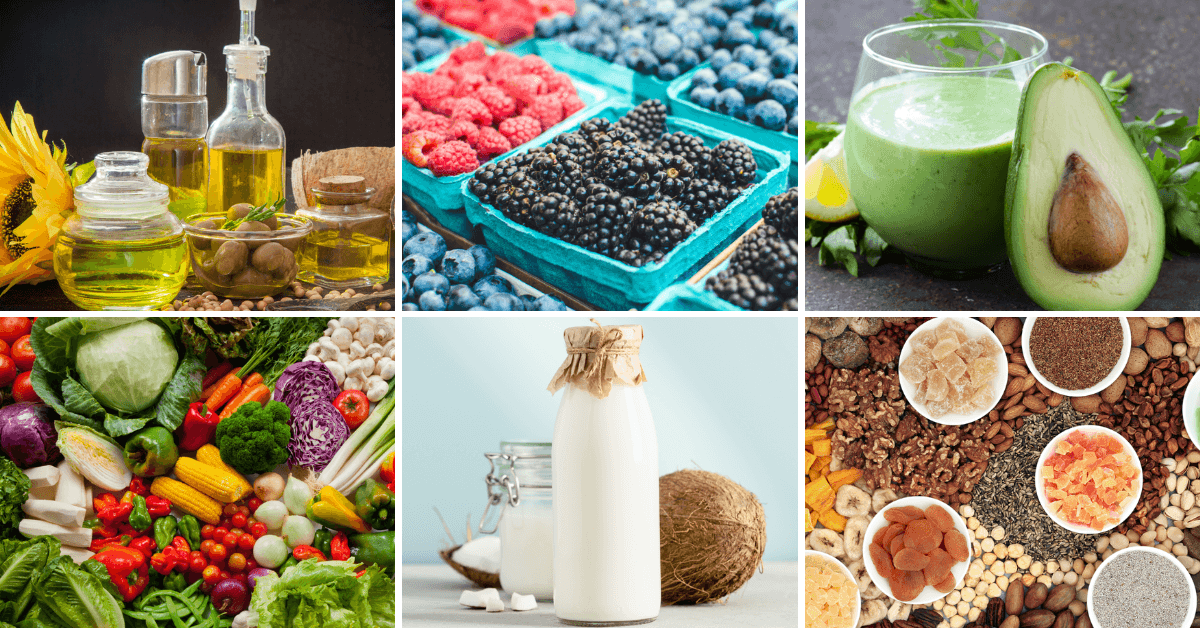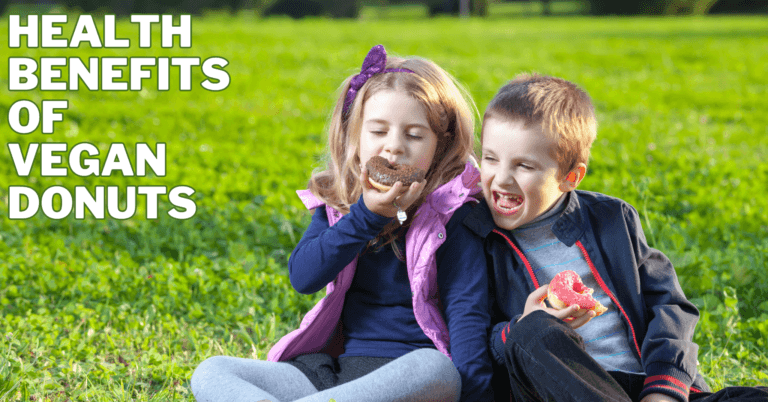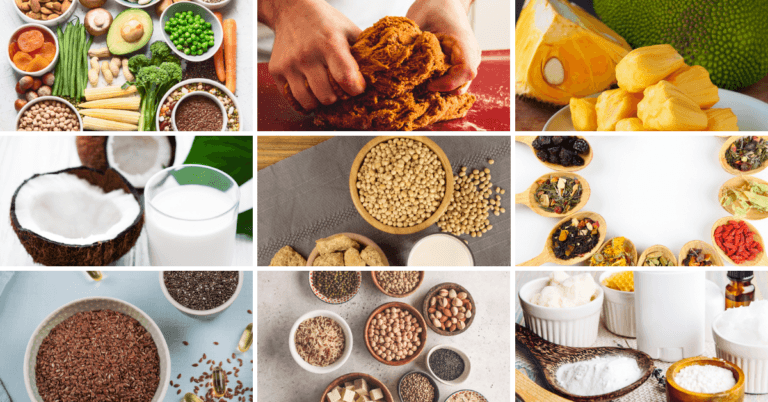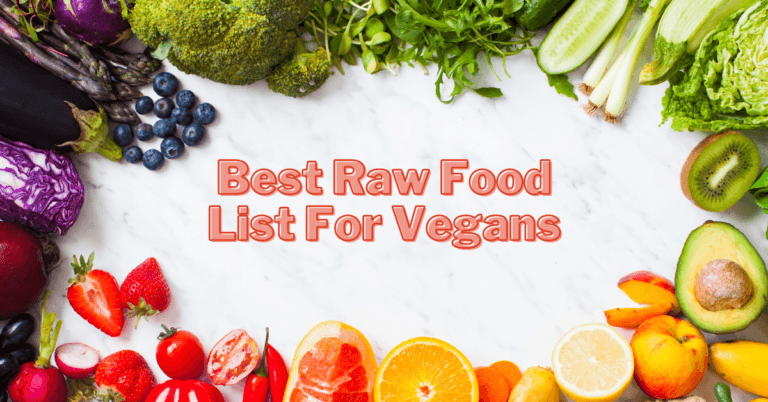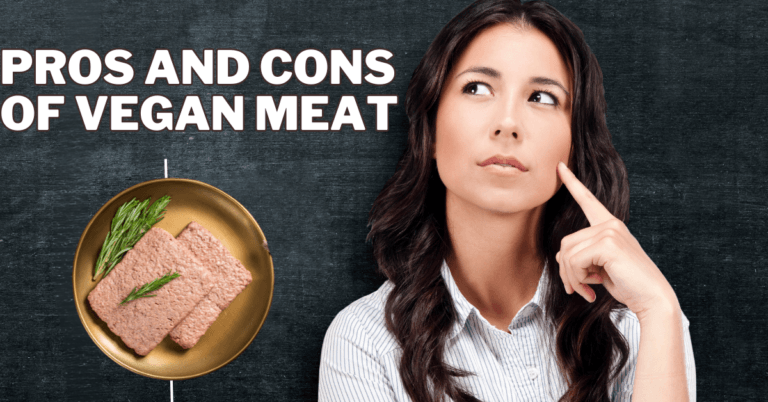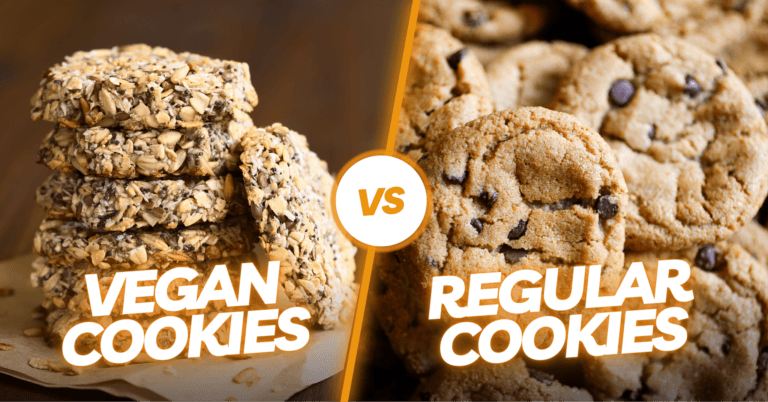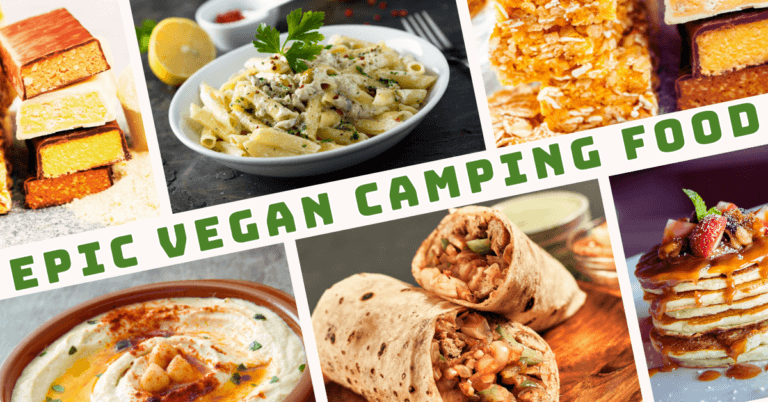Best Vegan Keto Food List
Best Vegan Keto Food List
Fusing a vegan lifestyle with the principles of a ketogenic diet might initially seem like an unconventional pairing.
Still, it's a testament to the diversity and adaptability of modern dietary choices. The vegan keto diet combines the nutrient-rich and plant-based foundation of veganism with the low-carb, high-fat approach of the ketogenic diet.
This harmonious merger presents a unique opportunity for those seeking both the ethical benefits of a vegan diet and the potential health advantages of ketosis.
In this article, we'll explore the world of vegan keto and provide a comprehensive list of foods that align with this intriguing and innovative dietary approach.
Whether you're a seasoned vegan looking to embark on a keto journey or a keto enthusiast interested in exploring plant-based options, this guide will illuminate the vast array of delectable and nourishing possibilities that await.
What Is Vegan Keto Food?
Vegan keto food refers to a specific dietary approach that combines the principles of a vegan lifestyle with the low-carbohydrate, high-fat focus of the ketogenic diet.
This eating style is centred on solely plant-based meals free of animal products and carbohydrate-restricted to induce a state of ketosis, in which the body switches from using glucose as its primary fuel source to relying on ketones produced from fats.
In a vegan keto diet, foods rich in healthy fats, such as avocados, coconut oil, olive oil, nuts, and seeds, take precedence, providing sustained energy and promoting satiety.
Non-starchy vegetables like leafy greens, cruciferous veggies, and zucchini are encouraged due to their low carbohydrate content and high fiber, which aids digestion and supports gut health.
Protein sources for vegans on a keto regimen include tofu, tempeh, seitan, and plant-based protein powders, ensuring that protein needs are met without disrupting ketosis.
While traditional ketogenic diets often rely on animal products, a vegan keto approach necessitates creative alternatives like plant-based dairy substitutes (unsweetened almond milk, coconut yogurt) and low-carb fruits like berries.
Herbal teas and water are preferred beverages, and non-starchy condiments and spices add flavour without compromising the diet's principles.
This combination of vegan and keto principles presents a unique set of challenges and opportunities.
Crafting balanced and nutrient-rich meals that align with both criteria requires thoughtful planning to ensure essential nutrients like vitamins, minerals, and amino acids are adequately supplied.
Those following a vegan keto diet may experience benefits such as weight management, increased mental clarity, and stabilized blood sugar levels.
This eating pattern may only be suited for some people because of its stringent carbohydrate limitation, so it is advisable to speak with a healthcare provider before starting this nutritional journey.
Vegan Keto Food List
Embarking on a journey toward health and wellness often involves exploring innovative dietary paths.
Fusing a vegan lifestyle with the principles of the ketogenic diet brings us to the vegan keto diet.
This intriguing approach combines veganism's plant-powered goodness with ketosis's metabolic benefits.
Let's explore the innovative and delicious world of the vegan keto food list, where vibrant flavours, healthful fats, and mindful choices intertwine to redefine our understanding of wholesome eating:
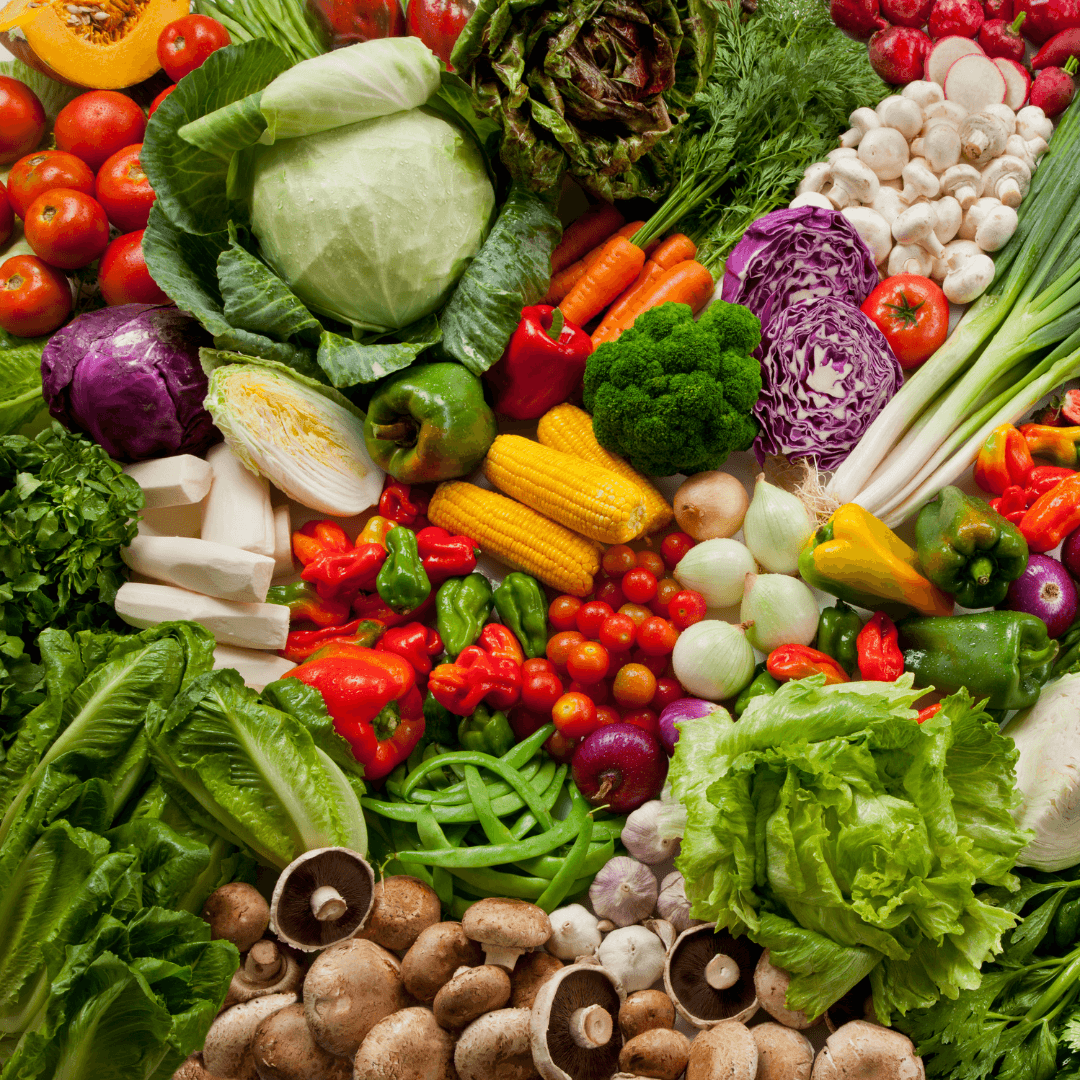
1. Low-Carb Vegetables
Low-carb vegetables play a crucial role in the vegan keto diet, providing essential nutrients without significantly impacting carbohydrate intake.
Spinach, kale, and other leafy greens are nutrient powerhouses, offering vitamins A, C, and K and minerals like iron and calcium.
These vegetables are exceptionally low in carbs and can be enjoyed in salads, smoothies, or sautéed dishes.
Cauliflower is a versatile option that can be transformed into rice, mashed “potatoes,” or even a pizza crust.
Zucchini and bell peppers are low in carbs and add vibrant colours and flavours to your meals.
Broccoli, known for its high fibre content, contributes to digestive health and adds a satisfying crunch to various dishes.
Incorporating these non-starchy vegetables into your meals enhances your fibre intake, which aids digestion and helps maintain stable blood sugar levels.
These vegetables include vitamins and minerals that promote healthy skin, a strong immune system, and general well-being.
Their low carbohydrate content also allows you to create satiating and satisfying meals while staying within the keto-friendly carb range.
Whether you're enjoying a hearty cauliflower rice stir-fry, a nutrient-packed kale salad, or roasted zucchini and peppers, these low-carb vegetables form the foundation of a balanced and nutritious vegan keto diet.
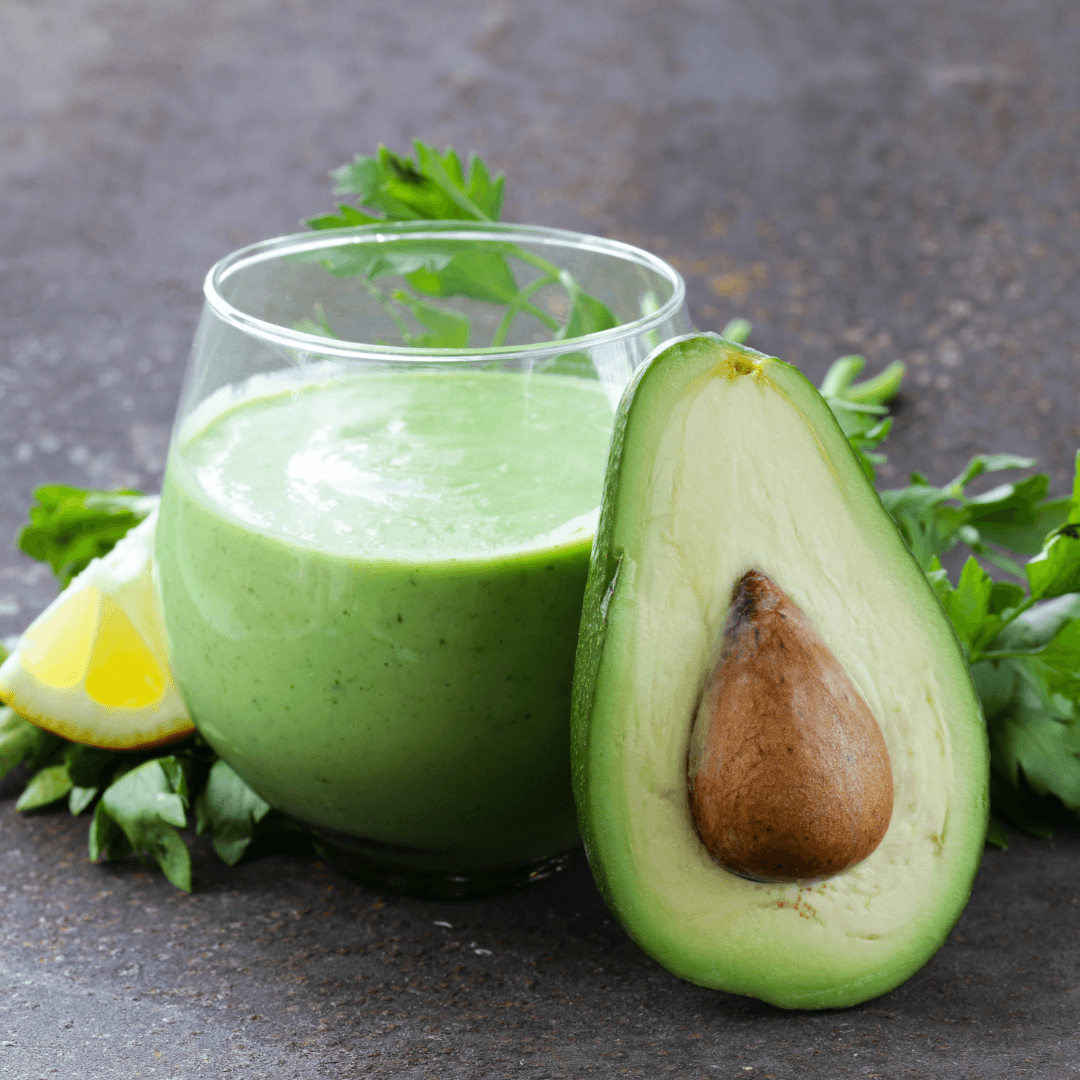
2. Avocado
Avocado is a star player in the vegan keto food list due to its rich nutrient profile and versatility.
This creamy fruit is packed with healthy monounsaturated fats that contribute to satiety and help support cardiovascular health.
These fats are also beneficial for maintaining steady energy levels on a low-carb diet. Avocados are a good source of healthy fats, but they are also a good source of dietary fiber, which promotes healthy digestion and makes you feel fuller for longer.
In addition to its nutritional benefits, avocado's smooth and luscious texture makes it an excellent ingredient for creating creamy sauces, dips, and dressings.
You can blend avocado into silky guacamole or use it as a base for a dairy-free chocolate mousse. It's also a wonderful topping for salads, adding a rich flavour and satisfying mouthfeel.
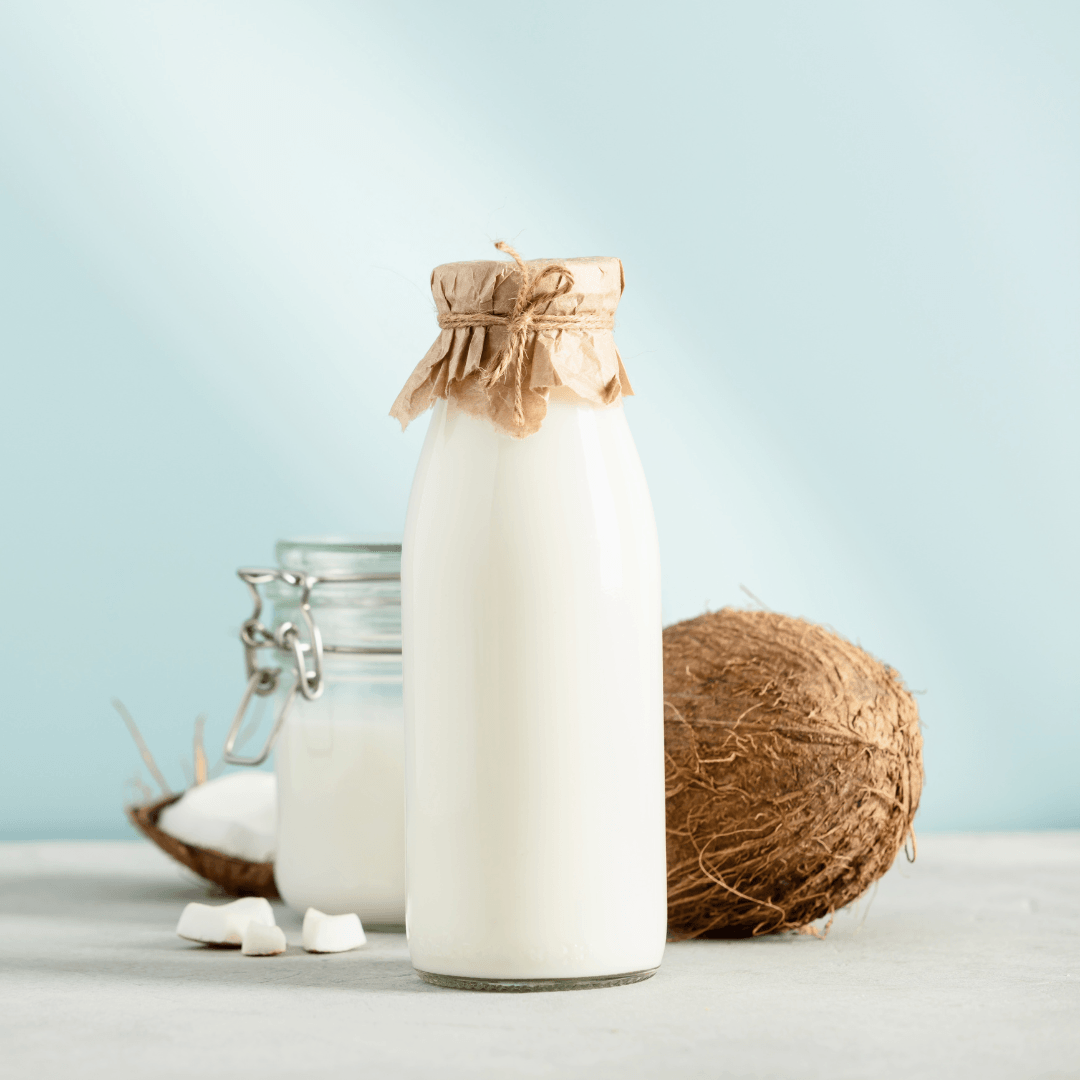
3. Coconut Products
Coconut products are essential components of the vegan keto food list. They are known for their abundance of healthy fats and versatile uses.
Coconut oil is a superstar in cooking and baking, as it has a high smoke point and adds a delightful tropical flavour to dishes.
Its medium-chain triglycerides (MCTs) are readily converted into energy by the body, making it an ideal choice for those following a low-carb diet.
Coconut milk, often used in curries, soups, and smoothies, is rich and creamy, providing a satisfying base for various recipes.
While it contains some carbohydrates, it's still viable when used mindfully. Unsweetened shredded coconut adds texture and flavour to dishes, and it's a fantastic ingredient for creating homemade granolas, energy bars, or keto-friendly desserts.
These coconut-based products contribute healthy fats and offer nutrients like lauric acid, which is known for its potential immune-boosting properties.
Incorporating coconut products into vegan keto meals can enhance taste and nutritional value. However, it's important to moderate your intake, as their calorie content can add up quickly.
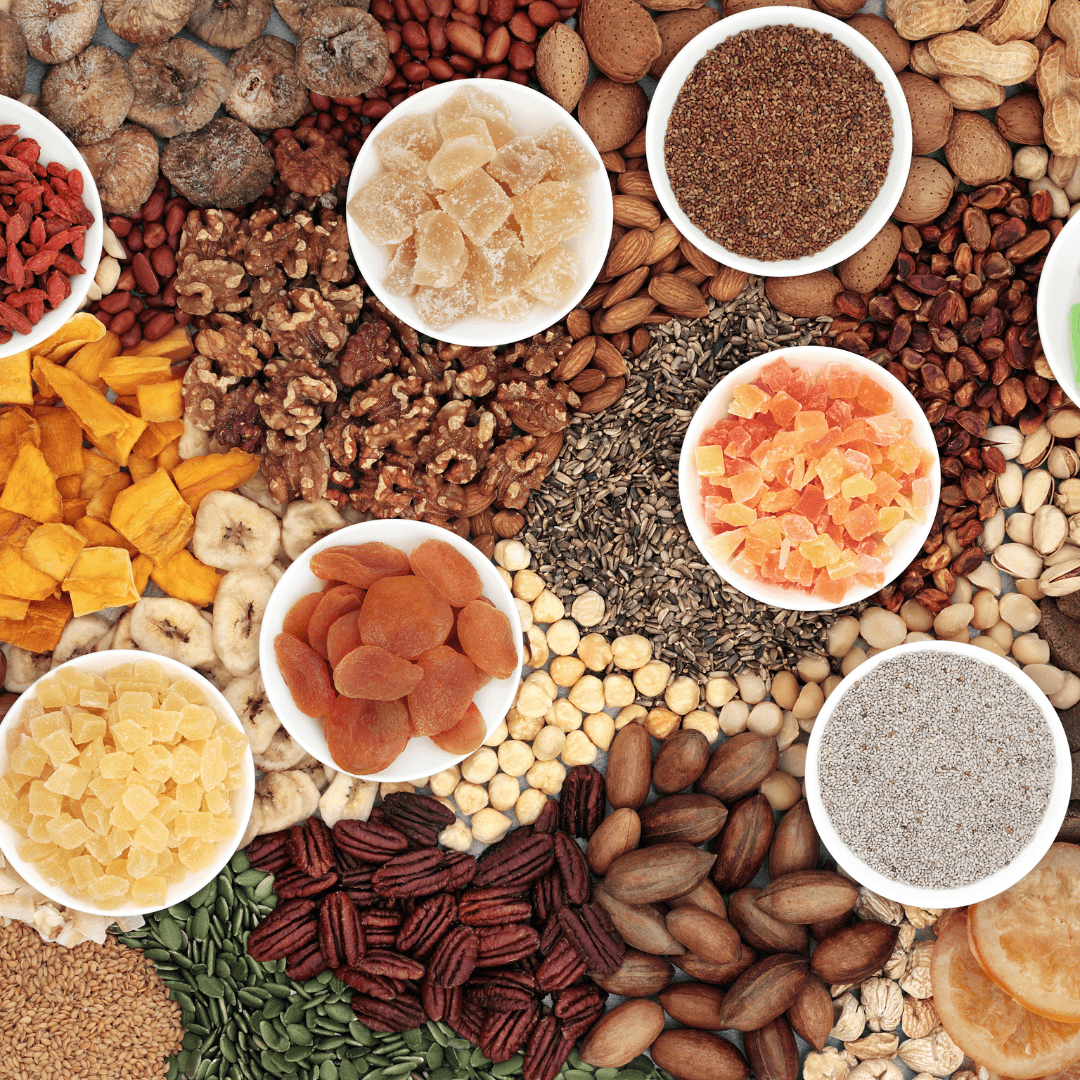
4. Nuts And Seeds
Nuts and seeds are pivotal in the vegan keto food list, offering a robust combination of healthy fats, protein, and essential nutrients.
Almonds, for instance, are a satisfying snack and a versatile ingredient in both savoury and sweet dishes.
They provide monounsaturated fats, vitamin E, and magnesium.Omega-3 fatty acids, which support heart health and cognitive function, are also abundant in walnuts.
Chia seeds and flaxseeds are nutritional powerhouses, boasting high fiber and plant-based omega-3 fatty acids.
These seeds are superb for creating chia puddings, adding texture to smoothies, or making keto-friendly crackers.
Hemp seeds are complete protein sources, containing all essential amino acids, and are rich in omega-3 and omega-6 fatty acids. They make a great addition to salads, yogurts, and baked goods.
In addition to healthy fats, nuts and seeds offer a range of micronutrients, such as magnesium, zinc, and various B vitamins.
Their versatility allows for endless culinary creativity, from using almond flour in low-carb baking to incorporating chia seeds as a thickening agent in recipes.
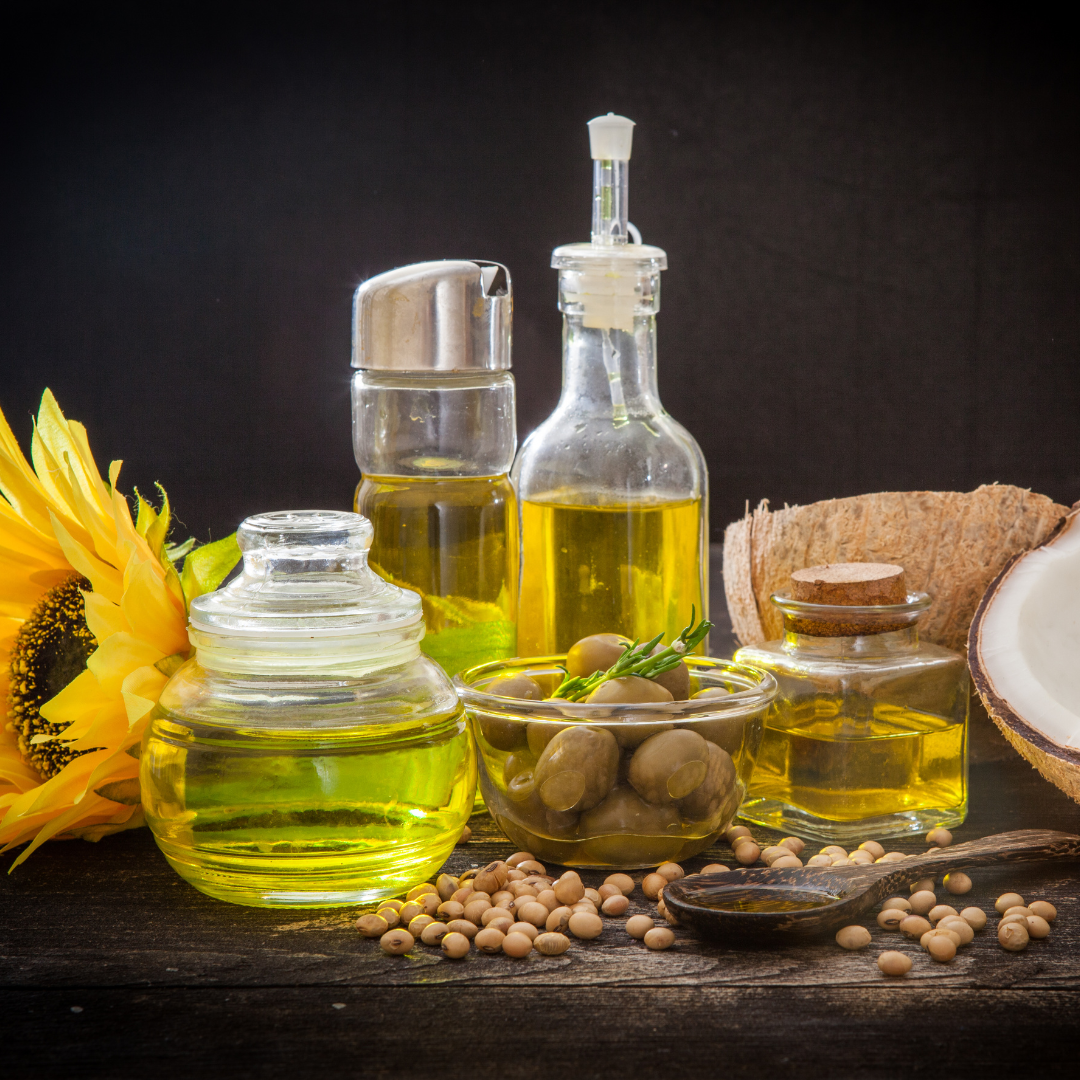
5. Plant-Based Oils
Plant-based oils are integral to the vegan keto food list, providing essential healthy fats and enhancing meals' flavour and nutritional value.
Olive oil, celebrated for its monounsaturated fats and antioxidants, is a versatile choice for sautéing, roasting, and creating homemade salad dressings.
Its rich, fruity flavour can elevate various dishes, from vegetable stir-fries to drizzling over grilled tofu.
Avocado oil is another prized option derived from nutrient-dense avocados. It is suitable for high-heat cooking techniques like frying and grilling since it has a high smoke point.
Its mild taste allows it to complement various cuisines and preparations. Additionally, avocado oil is rich in monounsaturated fats, vitamin E, and other antioxidants, contributing to heart health and overall well-being.
Medium-chain triglyceride (MCT) oil is particularly noteworthy in the context of the keto diet. Extracted from coconut oil, MCT oil is a source of readily available energy and is easily converted into ketones by the liver.
This makes it a popular choice for those following a keto regimen. Incorporating MCT oil into smoothies, coffee, or salad dressings can help increase ketone production and support the body's fat-burning processes.
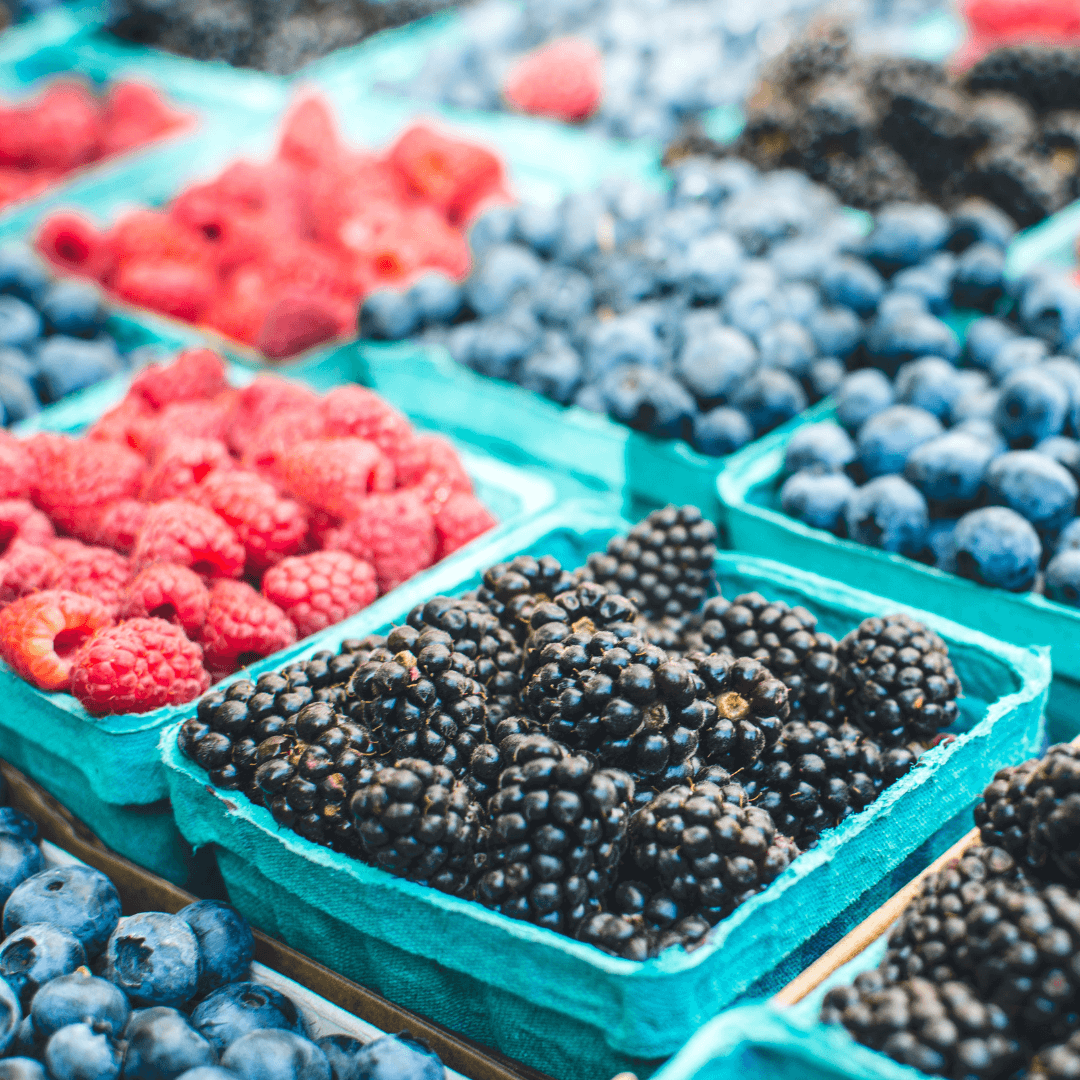
6. Berries
Berries, such as strawberries, blueberries, and raspberries, are delightful additions to the vegan keto food list, providing a burst of flavour and a dose of antioxidants.
These colourful and nutrient-packed fruits are relatively low in carbohydrates compared to other fruits, making them a suitable choice for those following a keto diet.
While berries contain natural sugars, they are also rich in dietary fiber, which can help slow down the absorption of sugars and support stable blood sugar levels.
One of the standout features of berries is their high content of antioxidants, particularly anthocyanins.
These compounds contribute to the vibrant colours of berries and have been associated with various health benefits, including reducing oxidative stress, inflammation, and the risk of chronic diseases.
Berries are also loaded with vitamins and minerals, such as manganese and vitamin C, critical for collagen synthesis, immune system health, and general well-being.
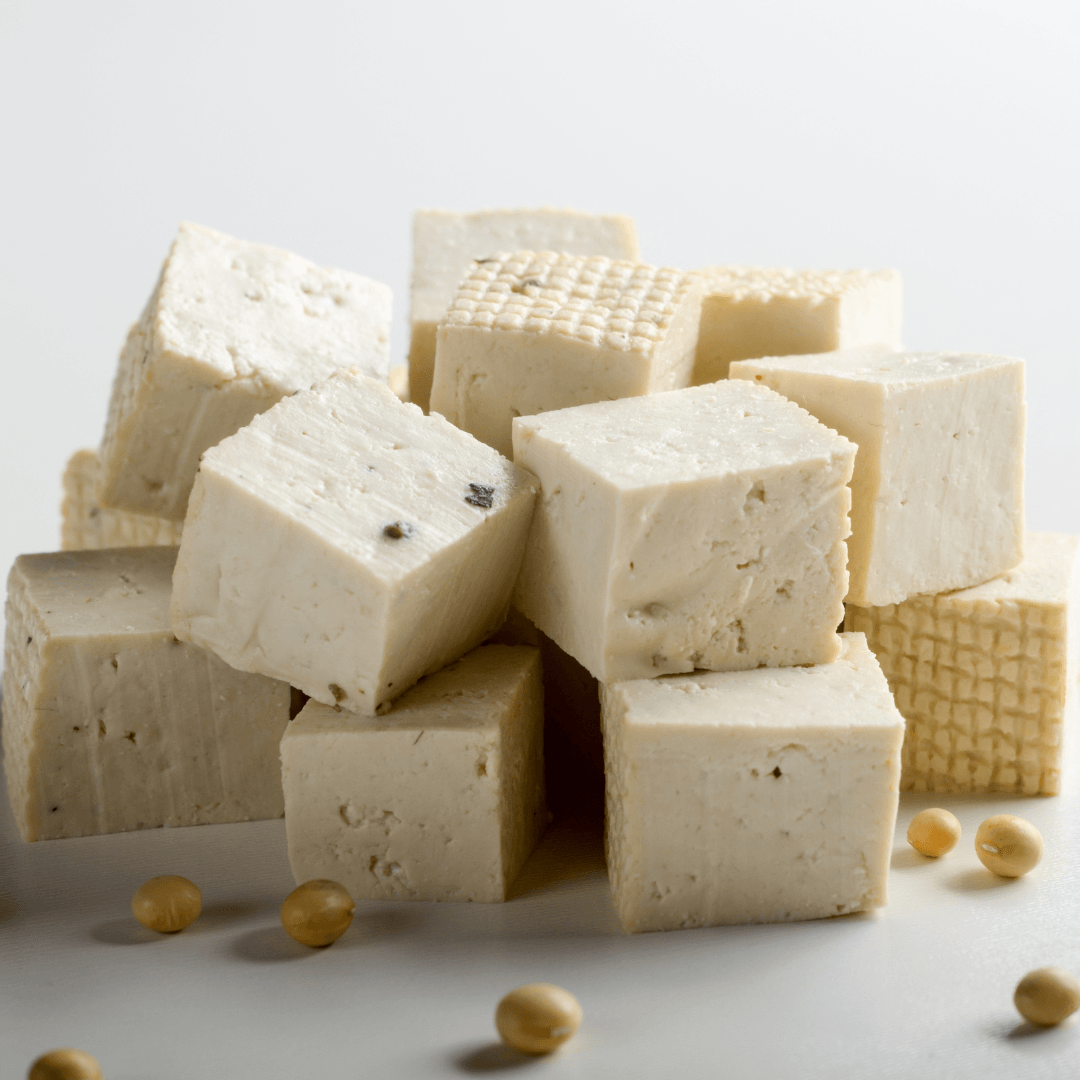
7. Non-Dairy Cheese
Non-dairy cheese has become a staple in the vegan keto diet, offering a savoury and creamy option to enhance the flavours and textures of various dishes.
While not all vegan cheeses suit a low-carb diet, some varieties are specifically formulated to be lower in carbs, making them a valuable addition to your culinary repertoire.
Non-dairy cheeses are typically made from plant-based ingredients such as nuts, seeds, soy, or root vegetables.
These cheeses can offer a range of flavours, from mild and tangy to bold and sharp, and come in various forms, such as slices, shreds, spreads, and blocks.
For those following a vegan keto diet, it's important to read the nutrition labels carefully to choose options that are lower in carbohydrates and higher in healthy fats.
When selecting non-dairy cheese, look for products with minimal additives and ingredients that align with your dietary goals.
Some vegan cheeses are also fortified with nutrients like vitamin B12, which can benefit individuals on a plant-based diet.
Non-dairy cheeses can be used to top salads, burgers, and cauliflower crust pizzas or melted into casseroles and gratins for a satisfying and flavourful experience.
As with any food, portion control is key, as even lower-carb options can contribute to your daily carbohydrate intake.
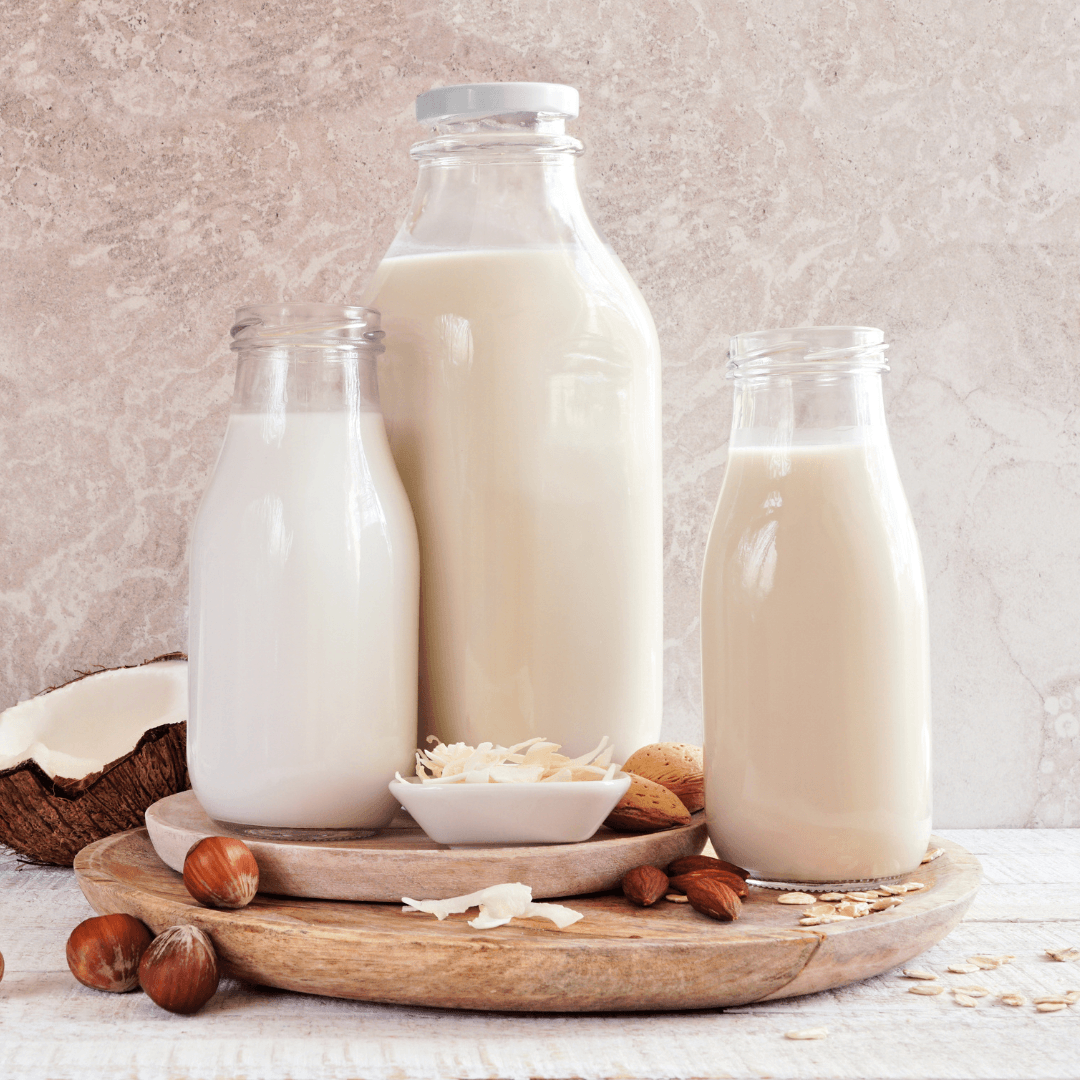
8. Non-Dairy Milk
Non-dairy milk options have become a cornerstone of the vegan keto diet, providing a versatile and low-carb alternative to traditional dairy milk.
Unsweetened almond, coconut, and hemp milk are popular among those following a plant-based ketogenic eating pattern.
These non-dairy milk alternatives offer a creamy texture and mild flavour, making them suitable for various uses.
They can be enjoyed independently, added to smoothies, used as a base for keto-friendly cereal, or incorporated into recipes like sauces, soups, and baked goods.
Unsweetened almond milk is low in carbs and calories, making it a go-to option for many. Coconut milk, on the other hand, provides a rich source of healthy fats, which is essential for a successful vegan keto diet.
Opting for unsweetened varieties to minimize carbohydrate content is important when selecting non-dairy milk.
Some non-dairy milk, especially flavoured ones, may contain added sugars that can impact your ability to stay in ketosis.
Reading labels carefully and choosing options with minimal additives will help you make informed choices that align with your dietary goals.
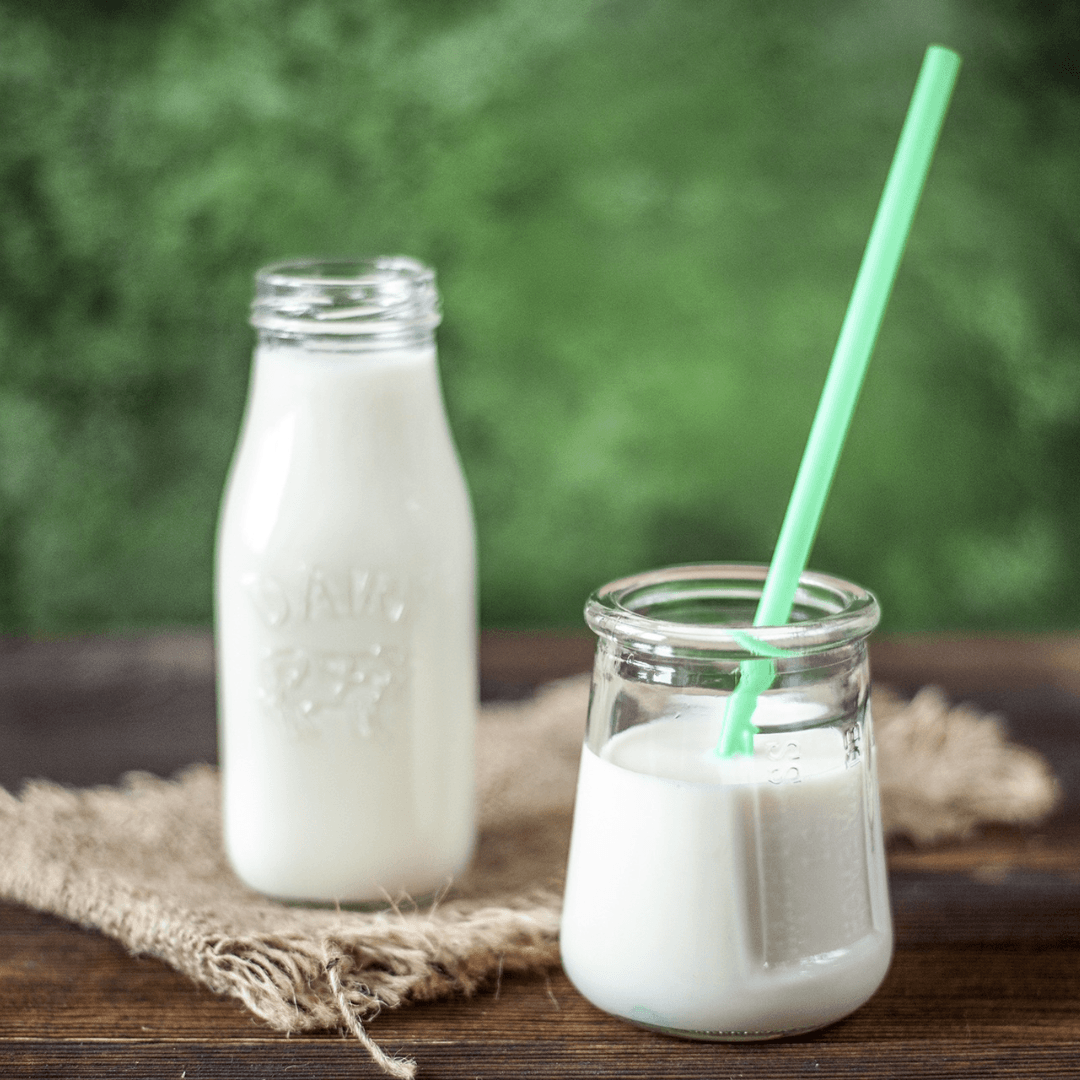
9. Non-Dairy Yogurts
Non-dairy yogurts are valuable additions to the vegan keto food list. Particularly those made from unsweetened coconut or almond milk, which offers a combination of probiotics and healthy fats.
These plant-based yogurts are rich in live bacterial cultures that support gut health and digestion.
Probiotics are crucial in maintaining a diverse and balanced gut microbiome linked to overall well-being, including immune function and mental health.
In addition to their probiotic content, non-dairy yogurts derived from coconut or almond milk are sources of heart-healthy fats.
Coconut milk is known for its medium-chain triglycerides (MCTs), which are easily converted into energy and can contribute to ketone production.
On the other hand, almond milk contains monounsaturated fats, which are associated with reduced inflammation and better heart health.
These non-dairy yogurts can be enjoyed independently or used as a base for various keto-friendly dishes.
They can be incorporated into smoothies, mixed with nuts and seeds for a crunchy parfait, or used as a topping for low-carb desserts.
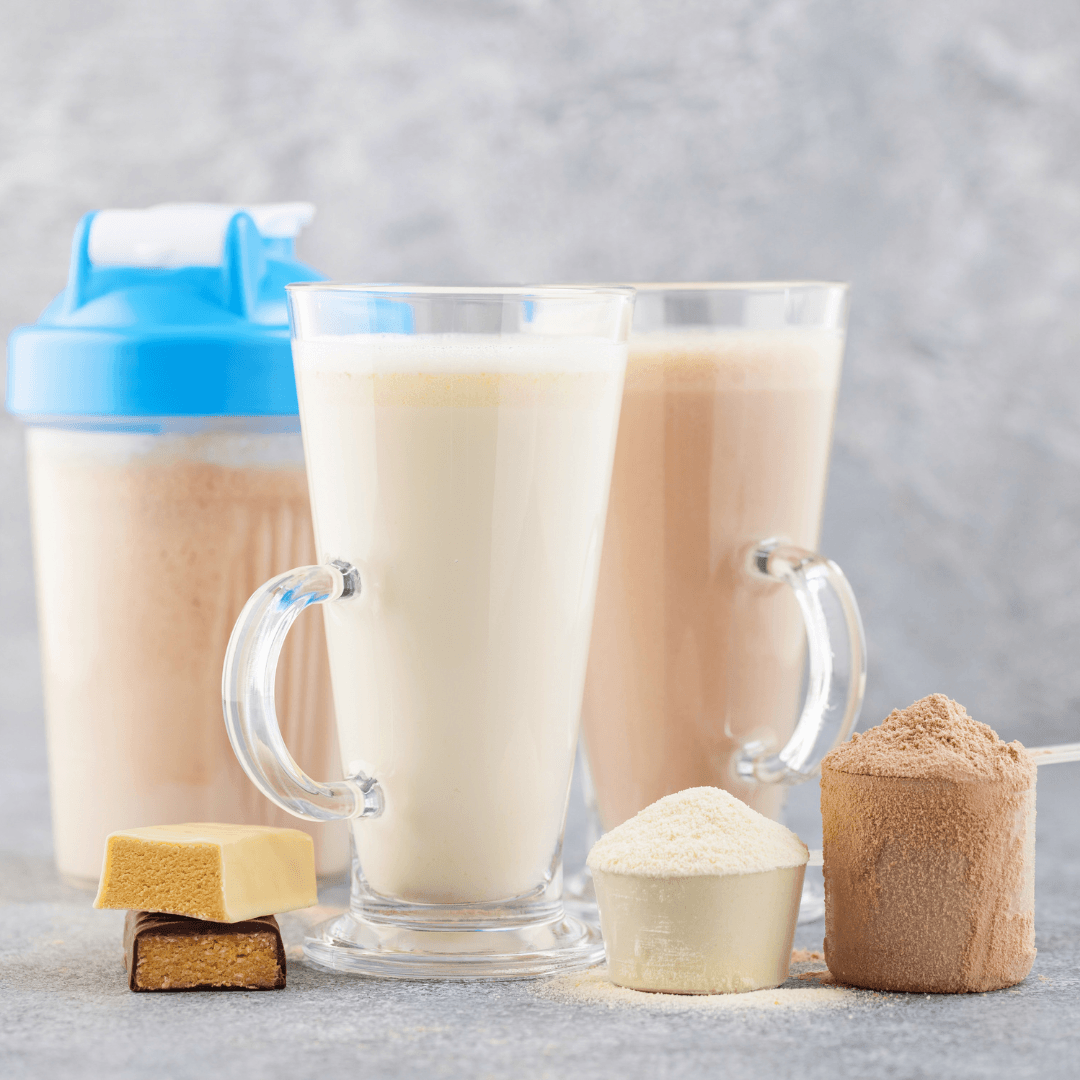
10. Plant-Based Protein Powder
Plant-based protein powder supplements a vegan keto diet to help you achieve your protein requirements while following a low-carb diet.
Selecting the right protein powder is essential, as not all options suit the ketogenic lifestyle. Look for low-carb vegan protein powders made from pea, hemp, or pumpkin seed protein.
These protein powders provide a convenient and versatile way to boost your protein intake. They can be easily mixed into water, almond milk, or coconut milk to create a protein-rich beverage, smoothies, and recipes.
When using protein powder, it's crucial to check the nutritional label for carbohydrate content, as some products may contain added sugars or higher carb levels that could affect your ketosis.
People who struggle to get enough protein from whole foods alone may find vegan protein powder helpful.
It can be especially useful for those following a strenuous exercise routine or seeking to support muscle growth and repair.
Additionally, protein plays a crucial role in promoting satiety, which can help you stay on track with your vegan keto goals by reducing hunger and preventing overeating.
Including plant-based protein powder in your vegan keto diet can enhance your nutrient intake, support muscle health, and contribute to your overall well-being.
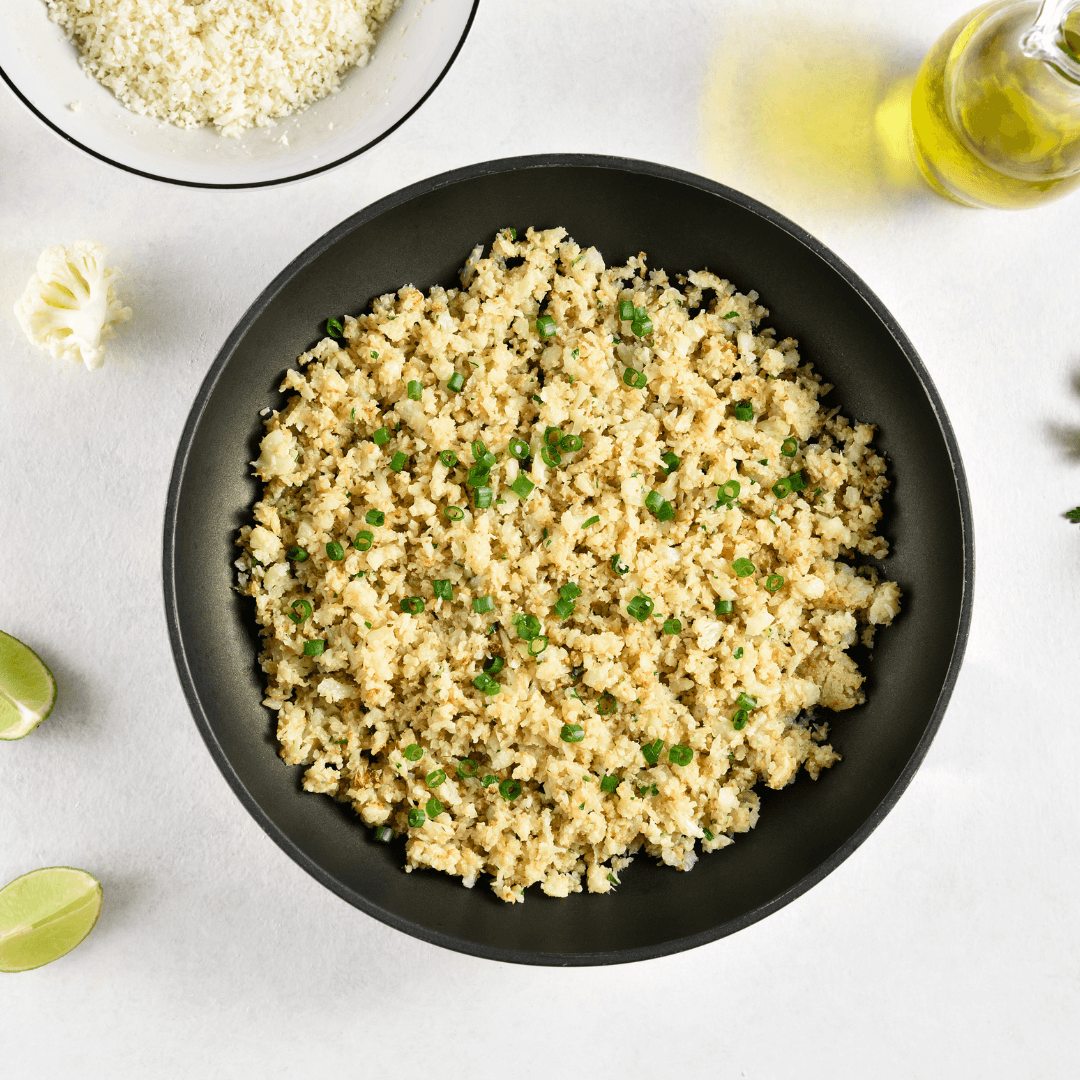
11. Cauliflower Rice
Cauliflower rice has become a staple in the world of low-carb and keto diets, offering a clever substitute for traditional rice that's both versatile and nutritious.
This finely chopped or grated cauliflower has a remarkably similar texture to rice when cooked, making it an ideal ingredient for crafting keto-friendly versions of classic dishes.
Not only does cauliflower rice provide a satisfying base for various meals, but it also helps keep your carbohydrate intake in check.
One of the main advantages of cauliflower rice is its significantly lower carbohydrate content than regular rice.
While a cup of cooked white rice can contain around 45 grams of carbs, cauliflower rice typically has only about 5 grams.
This dramatic reduction in carbs makes cauliflower rice an excellent option for individuals following a vegan keto diet, where minimizing carbohydrate intake is a primary focus.
Cauliflower rice can be prepared in various ways, such as sautéing, steaming, or microwaving. It serves as an excellent canvas for experimenting with flavours, whether crafting a stir-fry, a curry, or a keto-friendly sushi bowl.
Additionally, cauliflower is a rich source of vitamins, minerals, and antioxidants, contributing to your overall nutrient intake.
Conclusion
In conclusion, the vegan keto food list encompasses a diverse array of nutrient-rich and flavourful options that cater to those seeking to combine the benefits of a vegan and keto lifestyle.
This carefully curated selection of plant-based foods provides ample sources of healthy fats, moderate protein, and low carbohydrates, allowing individuals to achieve and maintain a state of ketosis while adhering to their ethical and dietary preferences.
The vegan keto food list opens up a world of culinary creativity, enabling the preparation of delicious dishes that span various cuisines and flavours.
Ultimately, the vegan keto food list demonstrates that achieving a harmonious balance between a plant-based lifestyle and the principles of ketogenic eating is possible.
With the right selection of foods and mindful meal planning, individuals can embark on a journey of improved health, sustainable living, and culinary exploration.
I trust you enjoyed reading the Best Vegan Keto Food List article. Please stay tuned. More blog posts will be posted very shortly.
JeannetteZ
>>> Please click here to read my Vegan Travel Guides To World Destinations <<<
>>> Want To Learn How To Create Delicious, Cruelty-Free, Healthy AND 100% Vegan Meals? Try These Awesome Vegan Cooking Courses With A Free 7-DAY MEMBERSHIP<<<
Your Opinion Is Important To Me
Do you have thoughts, ideas, or questions? I would love to hear from you. Please leave me your questions, experiences, and remarks about the Best Vegan Keto Food List in the comments section below. You can also email me at Jeannette@LivingTheVeganLifestyle.org.
Disclosure
This post may contain affiliate links. I earn from qualifying purchases as an Amazon Associate and other affiliate programs. Please read my full disclosure.
Here are some links to some of my favourite articles:
Vegan vs Vegetarian Is One Better Than The Other
Top Health Reasons To Go Vegan

